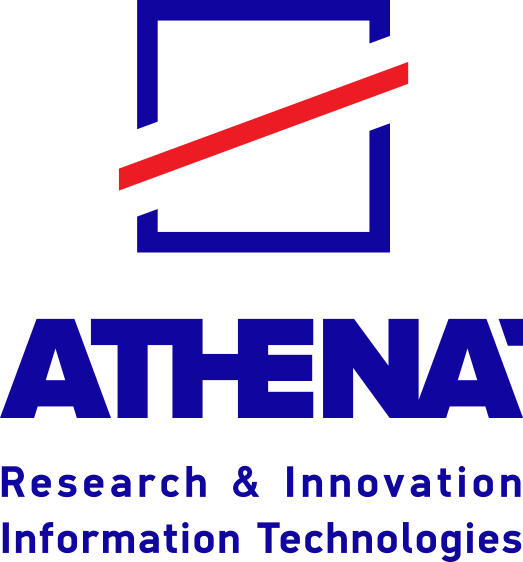Research Areas
ARCHIMEDES is a research unit engaging scientists from leading Greek and international institutions on research in Artificial Intelligence and its supporting disciplines, including Algorithms, Statistics, Learning Theory, and Game Theory. We place emphasis on the mathematical, algorithmic and conceptual foundations of these fields, and we target several application domains. Find out more about our (still expanding) list of research areas below.

Data Science and Engineering
We study topics and methods for handling data of large volumes and complex nature, to facilitate data analytics in scientific and industrial applications. Our main goal is to understand the requirements in data handling and engineering that arise in such applications and provide efficient and scalable solutions. The topics that we study include, but are not limited to, data representations, specialized data structures, and indices for complex data types (such as multidimensional vectors, spatial objects, temporal and time-series data, graph structures, semi-structured text); algorithms for processes that handle data in scientific workflows and end-to-end AI tasks; scaling up and out data analytics; security and privacy in decentralized data management and analysis tasks; systems infrastructure aiming at resource, energy, and runtime efficiency; management and analysis of semantic data and knowledge bases.

AI for LawFinTech
The aim of the Archimedes LawFinTech Hub is to bridge the existing gaps between the fields of finance and law by exploring their intersections while leveraging the capabilities of AI methods and Large Language Models (LLMs) to tackle complex issues that span both areas. The Hub’s aims and vision will be informed by AI researchers, practitioners, and industry experts from different disciplines, creating a platform for collaboration while driving the development of comprehensive frameworks that effectively address the multifaceted challenges present in both finance and law. This interdisciplinary approach will facilitate a deeper understanding of how AI can be utilised to innovate and improve practices within these interconnected fields. Our vision is to also support AI democratisation using open sourced large language models and to cover the significant gap in the global financial and legal industry by developing multi-lingual domain models, enhancing accessibility and inclusivity, enabling accurate and comprehensive analyses across different languages and regions, and promoting transparency and openness to empower a broader range of users and stakeholders, thereby fostering innovation and equitable growth in both sectors.

Machine Learning Foundations
We study the foundations of Machine Learning and Statistics. We study existing methods and models, and develop new ones, targeting challenging learning modalities. We develop techniques that address important challenges, including learning from data that are high-dimensional, contain biases, or are corrupted, and addressing fairness, incentive and reliability issues that arise at model deployment.
Alexandros Potamianos
Alkmini Sgouritsa
Antonios Anastasopoulos
Archontis Giannakidis
Aris Pagourtzis
Christos H. Papadimitriou
Christos Tzamos
Dimitrios Kanoulas
Dimitris Fotakis
Efstratios Gavves
George Korpas
Georgios Amanatidis
Georgios Christodoulou
Giorgos Papanastasiou
Ioannis Mitliagkas
Ioannis Panageas

Konstantinos Tsakalidis

Paris Giampouras
Sotirios Sabanis
Themos Stafylakis
Vasileios Nakos
Vasilis Gkatzelis
Yannis Panagakis

Responsible AI
As AI algorithms are increasingly deployed in domains that profoundly impact human lives, concerns about their reliability and societal impact have become more pressing. Responsible AI is crucial to ensure fairness, transparency, and accountability, preventing bias and unintended harm. It also fosters trust in AI systems by aligning their development with ethical principles, regulatory standards, and societal values.
Our research focuses on algorithmic fairness and explainability, examining their application across different contexts, including graph-structured data, recommendation systems and ranking. We also explore these issues in various applications, particularly in natural language processing, healthcare, and misinformation.

Computer Vision and Robotics
Our computer vision and robotics research advances the state-of-the-art in deep learning architectures through both supervised and self-supervised learning paradigms. We develop efficient few-shot learning algorithms and continual learning frameworks that enable robust generalization from limited annotated data while supporting incremental adaptation to novel tasks and domains. Our work in higher-order deep learning frameworks tackles the challenges of heterogeneous data representation and fusion, developing tensor-based architectures that can effectively process and integrate multimodal information streams while preserving their inherent geometric and topological structures. Complementing these advances, we pioneer neuromorphic computing approaches that reimagine visual processing through event-based sensing and spiking neural networks. This bio- inspired architecture enables efficient computation of dynamic visual features, including optical flow, depth estimation, and visual odometry, while significantly reducing computational overhead compared to traditional frame-based deep learning systems. These theoretical and algorithmic advances drive innovations across industrial machine vision, medical image analysis, autonomous navigation, and robotic perception, where our frameworks demonstrate superior sample efficiency and adaptive capabilities in non-stationary environments.
Alexandros Potamianos
Archontis Giannakidis
Dimitrios Kanoulas
Efstratios Gavves
Giorgos Papanastasiou
Giorgos Tolias
John Pavlopoulos

Katerina Pastra

Konstantinos Tsakalidis
Kostas Daniilidis
Maria Vakalopoulou
Nikos Komodakis
Panagiotis Kaklis

Paris Giampouras
Sotirios Sabanis
Sotirios Tsaftaris
Stefanos Nikolaidis
Stefanos Zafeiriou
Themos Stafylakis
Yannis Panagakis

AI for Health
Artificial Intelligence has become pivotal for research and innovation in health care. An increasing number of algorithms find their way to clinical practice providing powerful solutions and assisting medical doctors in their everyday practice. We study deep-learning-based approaches in this domain and work towards novel, unbiased, and generalizable algorithms for cancer treatment and response to immunotherapy. Of particular interest are learning schemes for training on gigapixel histopathological slides, transformer-based architectures with different attention schemes for the fusion of histopathology and genetic/clinical information, and bias identification and domain adaptation methods based on the image-to-image translation and adversarial attacks for addressing domain shifts and possibly biological and clinical biases.

Natural Language Processing
Natural Language Processing has seen important advances over the past decade. While deep learning models have achieved impressive performance, even demonstrating common-sense knowledge, they are commonly viewed as uninterpretable black-boxes. We combine deep learning with deductive reasoning techniques from the symbolic Artificial Intelligence tradition, to produce new algorithms capable of reaching conclusions requiring multiple inference steps, using premises and conclusions expressed in natural language. We are also interested in understanding multilingual language models. While neural multilingual language models (MLMs) have notable success, their internal mechanics remain quite unclear. We explore symbolic approaches to understand the inner workings of large MLMs and investigate how to inject linguistic knowledge into neural models, aiming to learn how to benefit from human expertise and work with sparse data.
Alexandros Potamianos
Angela Ralli
Antonios Anastasopoulos
Christos H. Papadimitriou
Dimitris Galanis
Grigorios Tsoumakas
Ion (Ioannis) Androutsopoulos
John Pavlopoulos

Katerina Pastra
Manolis Koubarakis
Nikos Vasilakis
Panagiotis Tsaparas
Pantelis John (PJ) Beaghton
Sophia Ananiadou
Stella Markantonatou
Themos Stafylakis

Game Theory/ Optimization/ Multi-Agent Learning
Over the past decade, Machine Learning has delivered important advances in learning challenges such as speech and image recognition, translation, text and image generation, and protein folding. These challenges pertain to single-agent learning problems, involving a single agent whose goal is to use observations from some unknown environment in order to learn how to make good predictions or decisions in this environment. These problems are typically modeled in the language of single-objective optimization and solved via simple methods such as gradient descent or some variant of it. From robustifying machine learning models against adversarial attacks to training generative models, to performing causal inference, to playing difficult games like Go, Poker and Starcraft, to improving autonomous driving agents, to evaluating the outcomes of economic policies, to training agents for some multi-agent interaction, many outstanding challenges in Machine Learning pertain to multi-agent learning problems, wherein multiple agents learn and make decisions and predictions in a shared environment. These settings deviate from the single-objective optimization paradigm as different agents may have different objectives, and Game Theory provides a useful framework for thinking about such settings. At the same time, classical Game Theory falls short from addressing the challenges posed by modern ML applications, such as the high-dimensionality of strategies and the non-concavity of utilities/non-convexity of losses that one typically encounters in these settings. We develop the foundations of multi-agent learning, bringing to bear techniques from optimization, game theory and learning.



